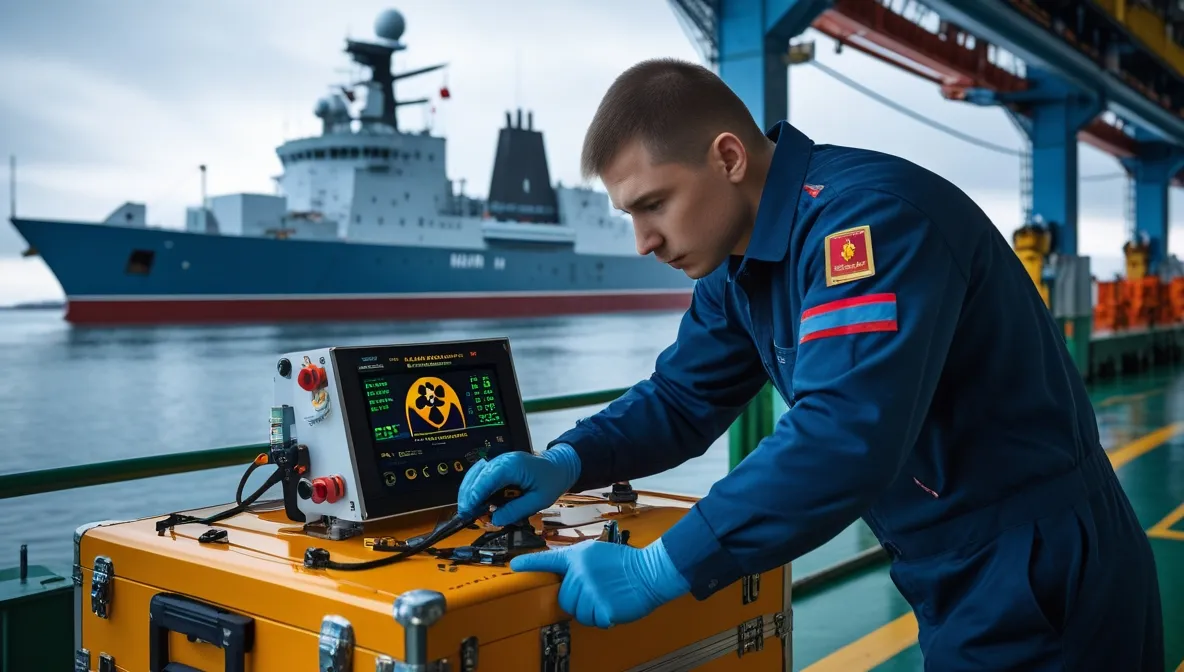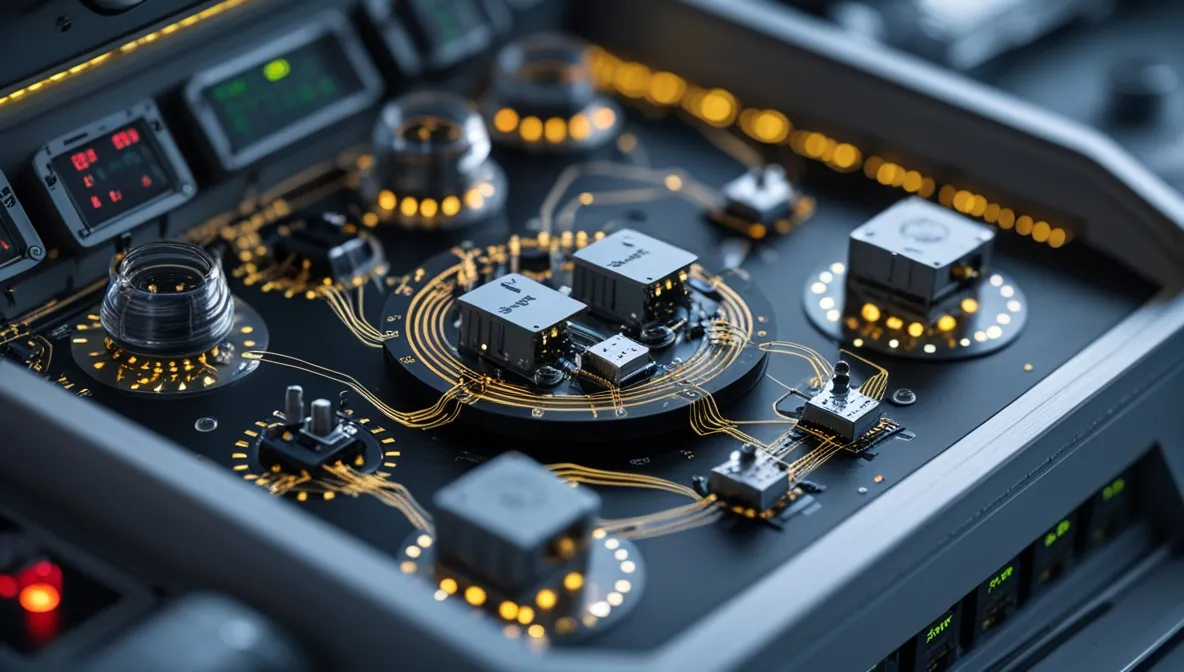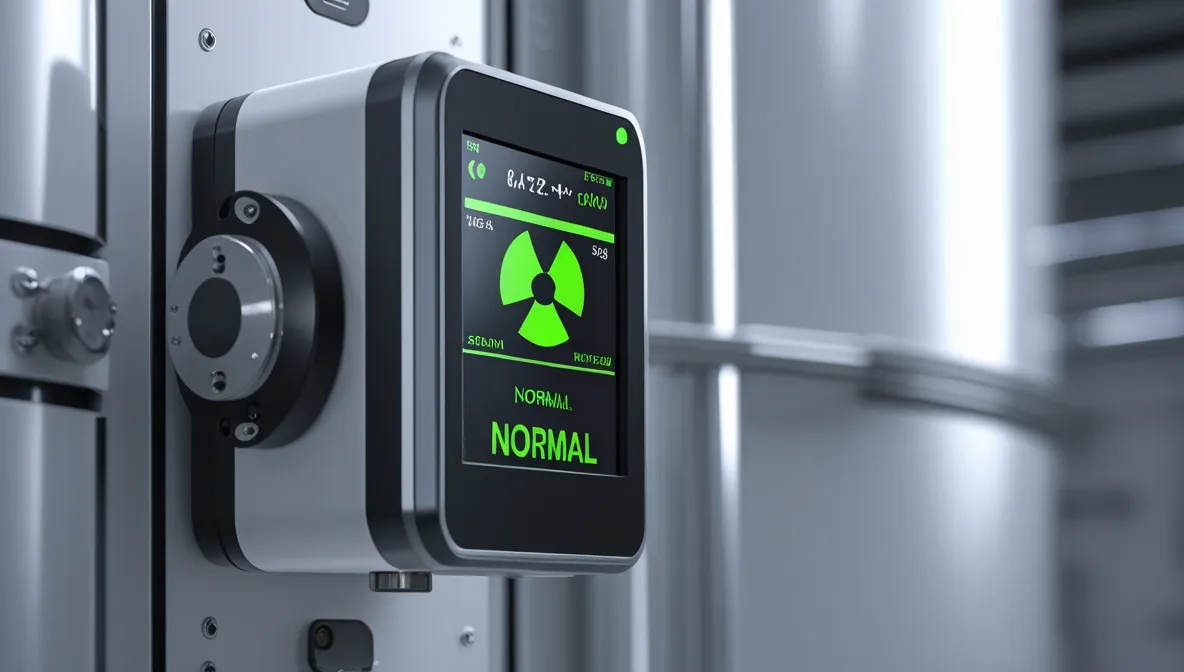Neural Shield of the Nuclear Fleet: How AI Protects Icebreakers from Radiation
The Russian company NPP DOZA is developing advanced intelligent radiation monitoring systems for nuclear icebreakers and small modular reactors, using neural networks to analyze thousands of parameters and predict pre-emergency conditions.

Phoenix: A Fifth-Generation System with No Global Equivalent
NPP DOZA has created the Phoenix radiation monitoring system — a fifth-generation innovation with no analogues worldwide. It is designed for continuous monitoring of radiation levels aboard nuclear icebreakers, vessels, and floating facilities. Phoenix is already installed on all nuclear-powered icebreakers of Project 22220 — Arktika, Sibir, Ural, Yakutia, and Chukotka — and in 2025, the company signed contracts to supply the systems for new icebreakers Leningrad and Stalingrad.
Thanks to its innovative design, high standardization, and use of modern technologies, Phoenix combines exceptional reliability with ease of operation. The system provides real-time information to ensure safe operation of the vessel and enables an immediate response to any deviation in radiation parameters.

Neural Networks Analyze Thousands of Parameters in Real Time
Modern radiation control systems employ artificial intelligence and machine learning algorithms capable of processing massive data streams from thousands of sensors simultaneously.
AI models identify patterns and predict potential issues by analyzing factors such as weather conditions, equipment status, and technological cycles — detecting anomalies far earlier than human operators.
This marks a shift from reactive control to proactive forecasting, allowing systems to anticipate potential risks and trigger preventive actions before a dangerous situation arises. Such capabilities greatly reduce human error and ensure stable, safe operation of nuclear installations.
Self-Diagnostics and Advanced Data Processing Algorithms
Next-generation intelligent monitoring systems feature self-diagnostic functions that automatically detect malfunctions and alert operators when maintenance is required.

Predictive algorithms assess the operational health of key components, preventing costly downtime and improving system reliability. Advanced data processing enables cross-referencing of real-time readings with historical datasets, modeling potential developments, and optimizing operational regimes. This approach increases measurement accuracy and reduces the likelihood of false alarms.
From Icebreakers to Small Modular Reactors
Beyond the nuclear fleet, NPP DOZA is also developing radiation control systems for small modular reactors (SMRs) using RITM-200N reactors, to be built in Yakutia and Uzbekistan.
The company offers fully integrated, turnkey radiation monitoring systems compatible with automated radiation situation monitoring systems (ASKRO). Since SMR projects are still in the design phase, NPP DOZA can implement the latest engineering and AI-based solutions from the ground up. Both ASRK and ASKRO systems are built on a unified software-hardware platform, significantly reducing costs related to testing, calibration, maintenance, and repair.

In 2025, the company is completing work on the Chukotka icebreaker and conducting acceptance tests of its radiation monitoring system for the upgraded floating nuclear power unit (FPU) of Project 20871. NPP DOZA has also designed universal test benches and an integrated testing complex for radiation monitoring systems — innovations that save space and reduce setup time.
Global Recognition and Technological Sovereignty
NPP DOZA’s equipment is used at nuclear power plants, icebreakers, industrial facilities, and medical research centers in more than 50 countries. Its products meet all applicable Russian and international standards. With strong R&D capabilities and consistent government support, the company continues to strengthen its position as a global leader in radiation safety technologies.










































